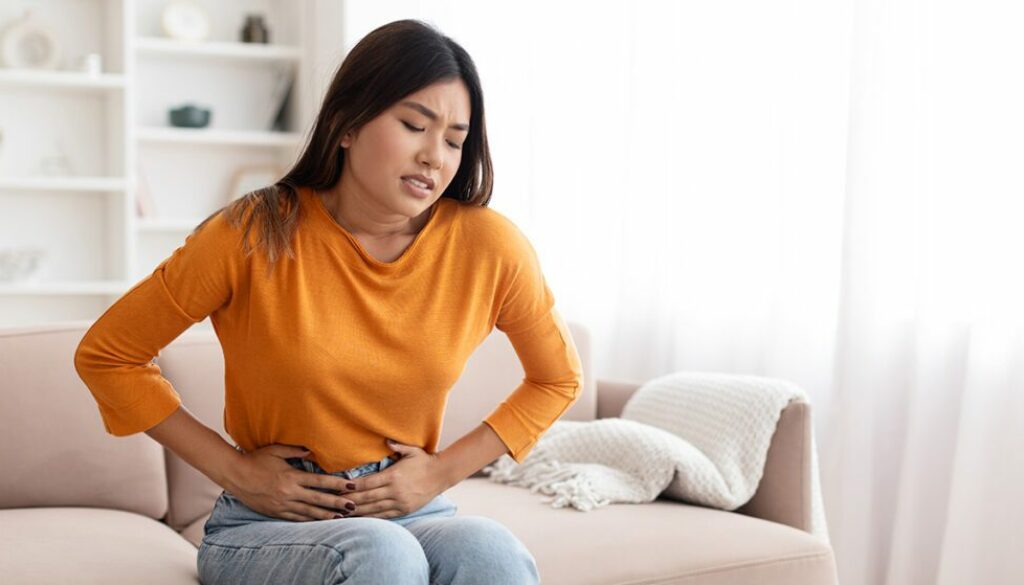Living with Endometriosis: 5 Expert Tips for Managing Pain and Fatigue
Living with endometriosis can be challenging, especially when it comes to managing the debilitating pain and fatigue that often accompany this condition. Our experienced OBGYNs at CMC Women’s Health understand the impact that endometriosis can have on your daily life. We’re sharing five of their expert tips to help you effectively manage your symptoms and improve your quality of life.
Understanding Endometriosis
Endometriosis is a common gynecological disorder characterized by the growth of tissue similar to the lining of the uterus outside of the womb. This tissue can cause inflammation, scarring, and pain, particularly during menstruation. Endometriosis can also lead to fatigue, bloating, and other symptoms that can significantly impact your physical and emotional well-being.
“The most common symptoms of endometriosis are painful menstrual periods associated with cramping and lower abdominal pain,” explained Dr. Lacey Armstrong with CMC Women’s Health. “Sometimes you may experience other symptoms like nausea, vomiting, and changes in urination and bowel movements. Mild cramping is common with normal menstrual cycles, but the pain and cramping caused by endometriosis are severe. This kind of pain doesn’t really respond to over-the-counter pain relievers or hormone therapies. Eventually, the pelvic pain can become more of a daily pain instead of just falling around your period.”
Tip 1: Prioritize Self-Care
Self-care is crucial when you are living with endometriosis. Make sure to get plenty of rest, eat a balanced diet, and engage in gentle exercise, such as yoga or walking. Managing stress is also essential, as stress can exacerbate the symptoms of endometriosis. Consider incorporating relaxation techniques, such as deep breathing or meditation, into your daily routine.

READ MORE:
What is a Balanced Diet?
In today’s fast-paced world, maintaining a healthy lifestyle is more important than ever. One of the fundamental aspects of a healthy life is a balanced diet.
Tip 2: Work with Your OBGYN
Developing a strong partnership with your OBGYN is key to effectively managing endometriosis. Your OBGYN can help you explore treatment options, such as medication, hormonal therapy, or surgery, that are tailored to your specific needs. Regular check-ups and open communication with your healthcare provider are essential for monitoring your condition and adjusting your treatment plan as needed.
Treatment Options for Endometriosis
There is no cure for endometriosis, but treatment can help women manage their symptoms and significantly reduce endometriosis pain. Not only that but the later endometriosis is diagnosed, the more likely it can lead to other health problems. “It’s a progressive disease,” advised Dr. Armstrong, “therefore, early diagnosis and treatment are crucial. We want to prevent endometriosis from advancing and causing further pain, scar tissue, organ damage, and future infertility.”
“We start with nonsurgical treatments for girls, teens, and young women who are not currently trying to become pregnant. The most common nonsurgical treatments we use are hormonal medications that cause endometrial lesions to shrink and prevent the condition from spreading further.”
Many females will try several of these medications or use them together to control their endometriosis symptoms. These hormonal treatments reduce the spread of endometriosis and help protect the future fertility of young women with the condition.
If symptoms are severe and don’t improve after six months of medical treatment, then surgery may be the next step. “Surgery is never a first resort, especially for young women,” stressed Dr. Armstrong, “but when it does become necessary, laparoscopy is used to treat it.”
Tip 3: Stay Active
While it’s important to listen to your body and rest when needed, staying active can help alleviate pain and fatigue associated with endometriosis. Exercise helps reduce inflammation in the body, which is crucial for managing the pain associated with the condition. It also promotes the release of endorphins, which are natural painkillers that can help alleviate discomfort.
When it comes to choosing the right workouts for managing endometriosis pain, low-impact exercises are often the best option. Activities such as yoga, Pilates, and swimming can help strengthen the muscles, improve flexibility, and alleviate tension in the body. These workouts are gentle on the joints and can be easily modified to suit your individual needs. Remember to pace yourself and avoid overexertion, especially during flare-ups.
Tip 4: Manage Your Diet
Eating a healthy, balanced diet can play a significant role in managing the symptoms of endometriosis. Focus on incorporating anti-inflammatory foods, such as fruits, vegetables, whole grains, and lean proteins, into your meals. Limiting caffeine, alcohol, and processed foods may also help reduce inflammation and improve your overall well-being.
Foods to Include in Your Endometriosis Diet
- Fresh Fruits and Vegetables: They provide essential vitamins, minerals, and antioxidants that help reduce inflammation and support overall health. Berries, leafy greens, and citrus fruits are particularly beneficial for women living with endometriosis.
- Omega-3 Rich Foods: Fatty fish like salmon, chia seeds, and walnuts are excellent sources of omega-3 fatty acids, known for their anti-inflammatory properties.
- Lean Proteins: Protein is essential for tissue repair and hormone production, both of which are crucial for managing endometriosis symptoms.
Foods to Avoid for Endometriosis Symptom Management
- Processed Foods: Processed foods high in refined sugars, unhealthy fats, and artificial additives can contribute to inflammation and hormonal imbalances, worsening endometriosis symptoms. Limit your intake of processed snacks, fast food, and sugary beverages.
- Dairy Products: Dairy products like milk, cheese, and ice cream contain hormones and proteins that may trigger inflammation and digestive issues in some women with endometriosis.
- Caffeine and Alcohol Both can disrupt hormone levels and worsen inflammation in women with endometriosis.
- Gluten: Some women with endometriosis may experience gluten sensitivity, leading to digestive discomfort and inflammation.
Tip 5: Seek Support
Living with endometriosis can be isolating, but you are not alone. Seeking support from friends, family, or a support group can provide emotional validation and practical tips for managing your symptoms. Connecting with others who understand what you’re going through can offer a sense of community and empowerment as you navigate your endometriosis journey.
Managing endometriosis requires a comprehensive approach that addresses both physical and emotional aspects of the condition. By prioritizing self-care, working closely with your OBGYN, staying active, managing your diet, and seeking support, you can take control of your symptoms and improve your quality of life. Remember, you deserve to live a full and vibrant life, even if you’re living with endometriosis.
Why choose CMC Women’s Health?
As a woman, taking care of your body is very important no matter what age you are. From getting your first period to going through menopause, the health changes that occur starting during your teenage years through adulthood are significant. At CMC Women’s Health, our specialists in gynecology are experts at providing age-appropriate gynecologic care and making our patients feel at ease. Trust us to provide the expert care you need on your personal health journey.




